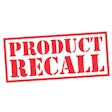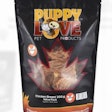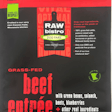
"The recent sickening of pets from toxic ingredients blended into petfoods was more a failure of corporate supplier quality programs than a failure of regulatory systems," contends the American Society for Quality. Put another way, you cannot just rely on government regulators to protect your brand and your petfood sales, it's up to you.
Sourcing services
With that in mind, I recently talked with Kris Colby, director of strategic sourcing at Ariba Inc. ( www.ariba.com ), a company that offers petfood companies procurement services for a wide variety of commodities. "Our company provides 'spend management' solutions to organizations throughout the consumer products industry," says Colby. "The process of spend management provides supply chain transparency and enables companies to gain greater control over supply chain activity. This can be a particularly effective means of driving compliance with government and industry standards," he says, "as well as preventing problems such as we've seen in the recent rash of food contamination episodes."
The trust imperative
Dr. Doug Powell, the scientific director of the International Food Safety Network, contends, "What consumers see is the brand name. Your name's on it and if you sell an unsafe product, you're liable. The lesson is know your suppliers, and this goes way beyond HACCP, checklists and so forth; that's all paper."
Powell says you need to have your people on the ground watching to see that suppliers are doing what they say they are doing. "Producers know how to cheat, they don't like paperwork and they know how to get around it," says Powell. "You need to build trust with your suppliers."
Being a good gatekeeper
Colby notes that your procurement officer needs to play gatekeeper. He says, "The role of the gatekeeper is to make sure everything coming into the company, materials, products or services, meets your company's standards for quality and safety, and exceeds governmental and industry standards for compliance."
With this process, companies can set a higher standard for safety at the outset of a relationship by making safety procedures a criterion for selection in addition to traditional criteria such as price and service levels. Once spelled out during the sourcing process and in any subsequent contract, these safety standards can then be used as a basis for ongoing supplier performance management. "The procurement officer is in a unique position to do this," says Colby, "by gaining strategic control over all company spending activity and setting expectations early with potential suppliers."
When I ask Colby about suppliers falsifying paper work, he asserts that "Ariba's system enables companies to glean accurate and timely information from the procurement function. Having this kind of spend visibility makes it much more difficult to fudge numbers." He went on to say, "While it is impossible to totally ensure contamination will not enter into your supply chain, a structured strategic sourcing process (see sidebar) can do much to inoculate companies against contamination, and provide a paper trail if an incident does occur.""(It's also noteworthy that some companies do feeding trials on every batch of petfood made. That batch is held until it passes a feeding trial.)
If a company follows the above procedures, asserts Colby, "it can provide a shield against liability. In other words, if suppliers are contracted to follow certain procedures and meet certain criteria and then breach the agreement, the company can provide evidence that it took all the necessary precautions to avoid contamination. Also, he says, a system that enables organizations to source from multiple vendors can allow a company to quickly make the necessary supply chain changes if contamination does occur."
Accountability for supply chains
Finally, when asked how the recent rash of petfood recalls will affect petfood manufacturers' operations and marketing, Colby replies: "Supply chains are getting ever longer and companies are going to be more accountable for their supply chains, including those of their suppliers. They are going to realize they cannot rely on the government to weed out faulty safety procedures across the supply chain, and that they will need to be more vigilant in preventing scandals like the recent melamine crisis."
By getting their own house in order, petfood manufacturers will avoid significant fines and penalties that will likely result from increased scrutiny and stricter legislation from the US government in the near future.
Smart companies will be taking a serious look at their own supply chains for potential weaknesses. We're going to see the supplier management process become much stricter. Companies may make documentation of safe supply chain practices a regular part of their marketing activities. By carefully selecting suppliers and setting clear and enforceable expectations about performance and compliance, you can reduce your company's exposure.

.png?auto=format%2Ccompress&fit=crop&h=167&q=70&w=250)














